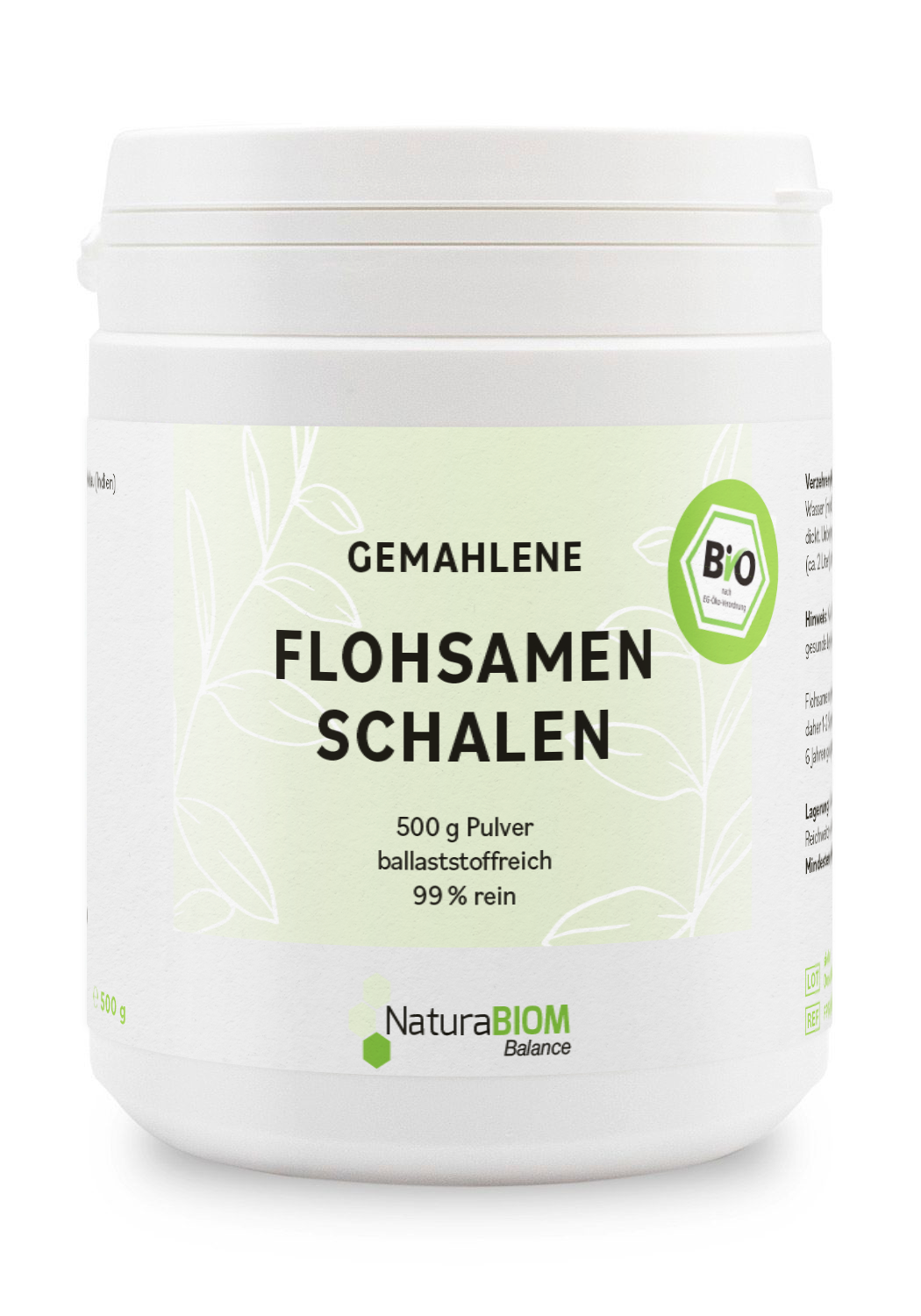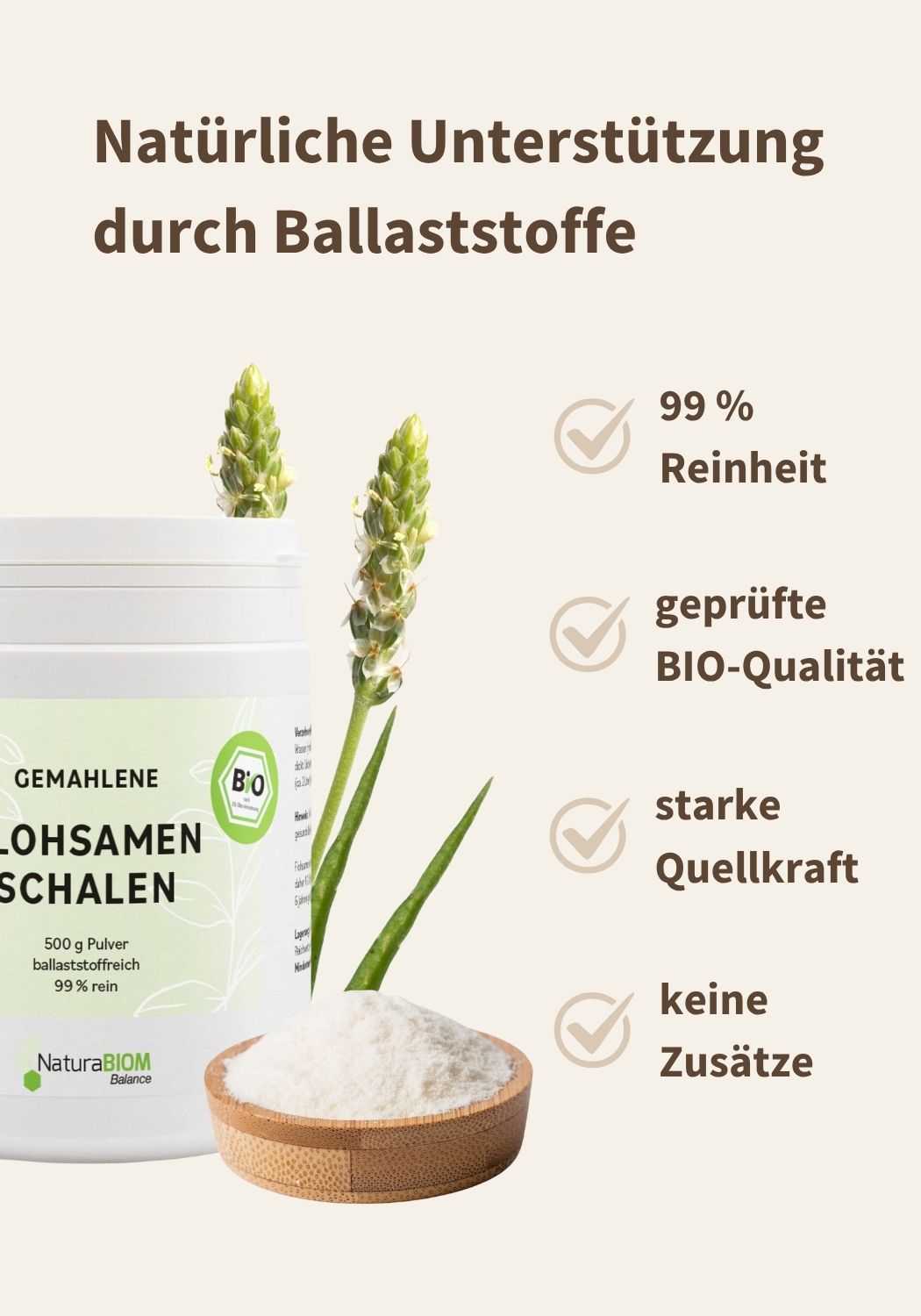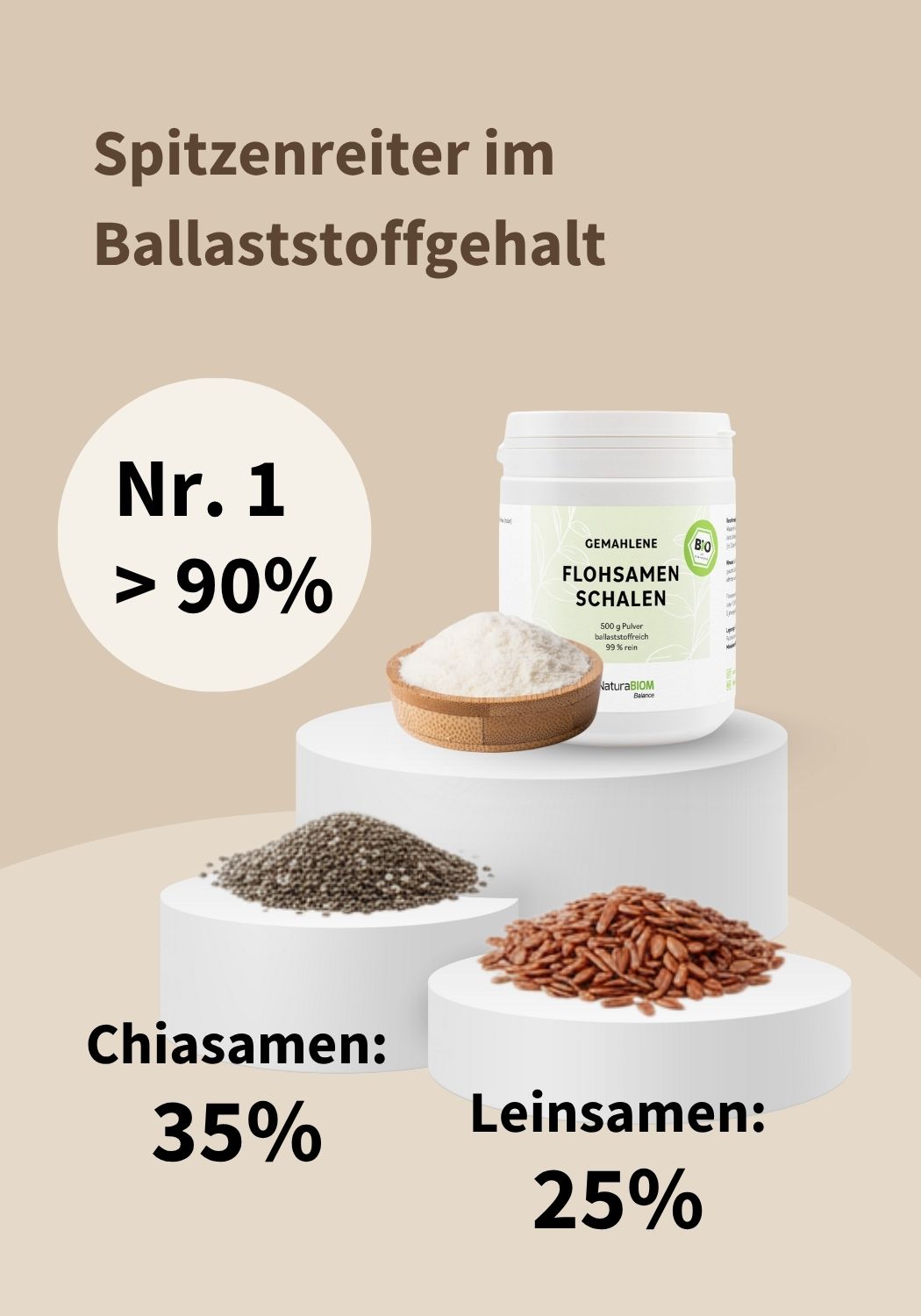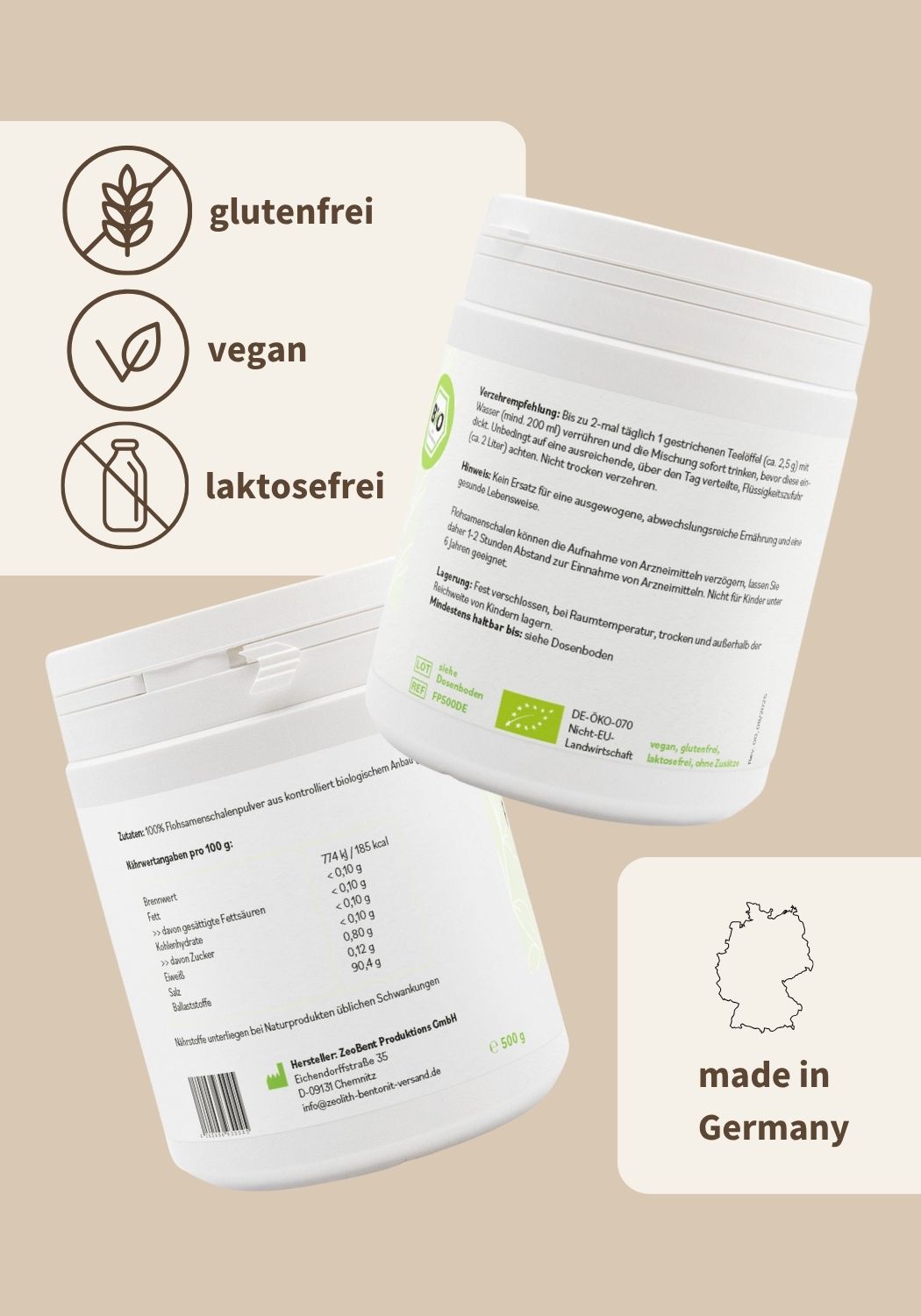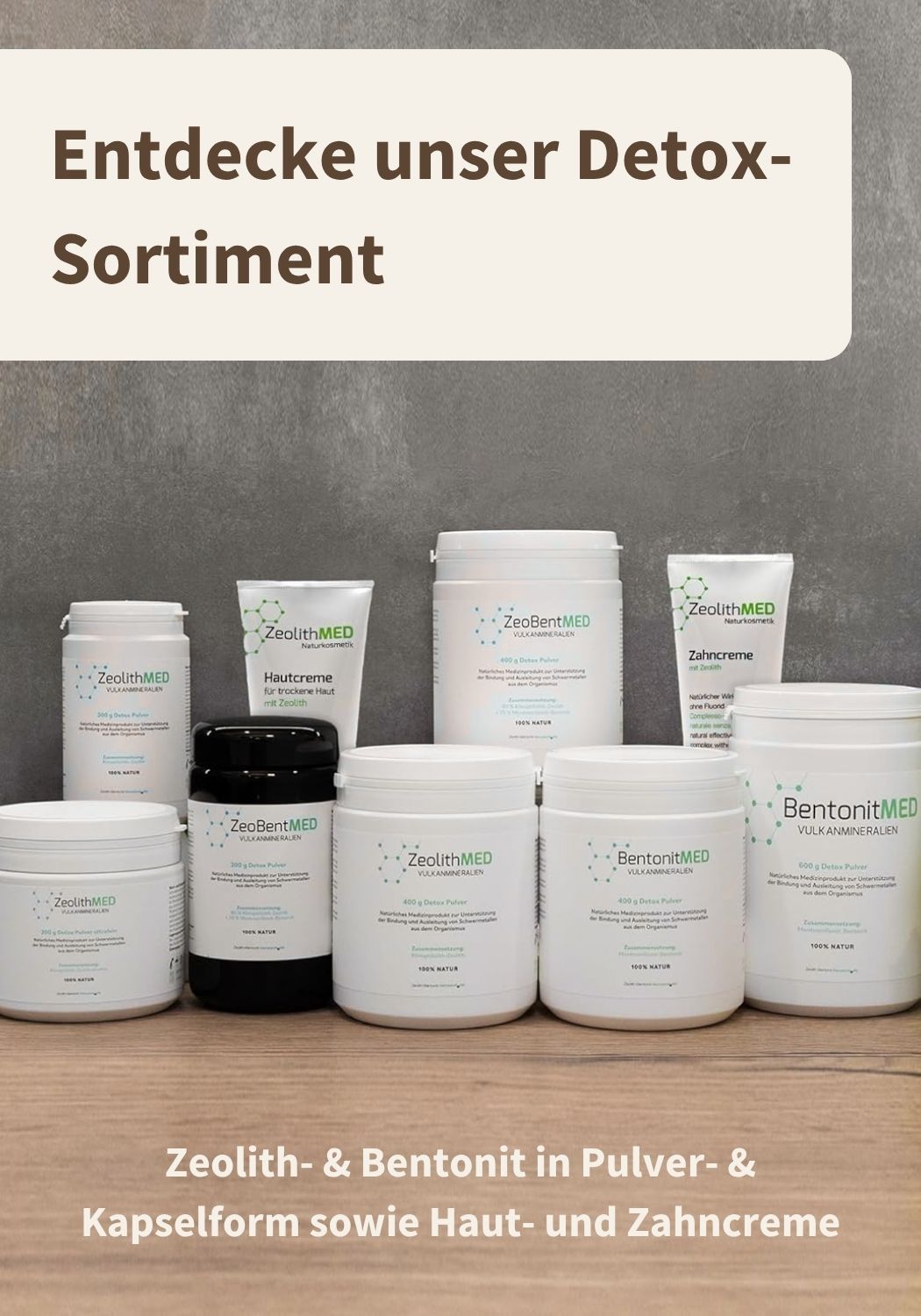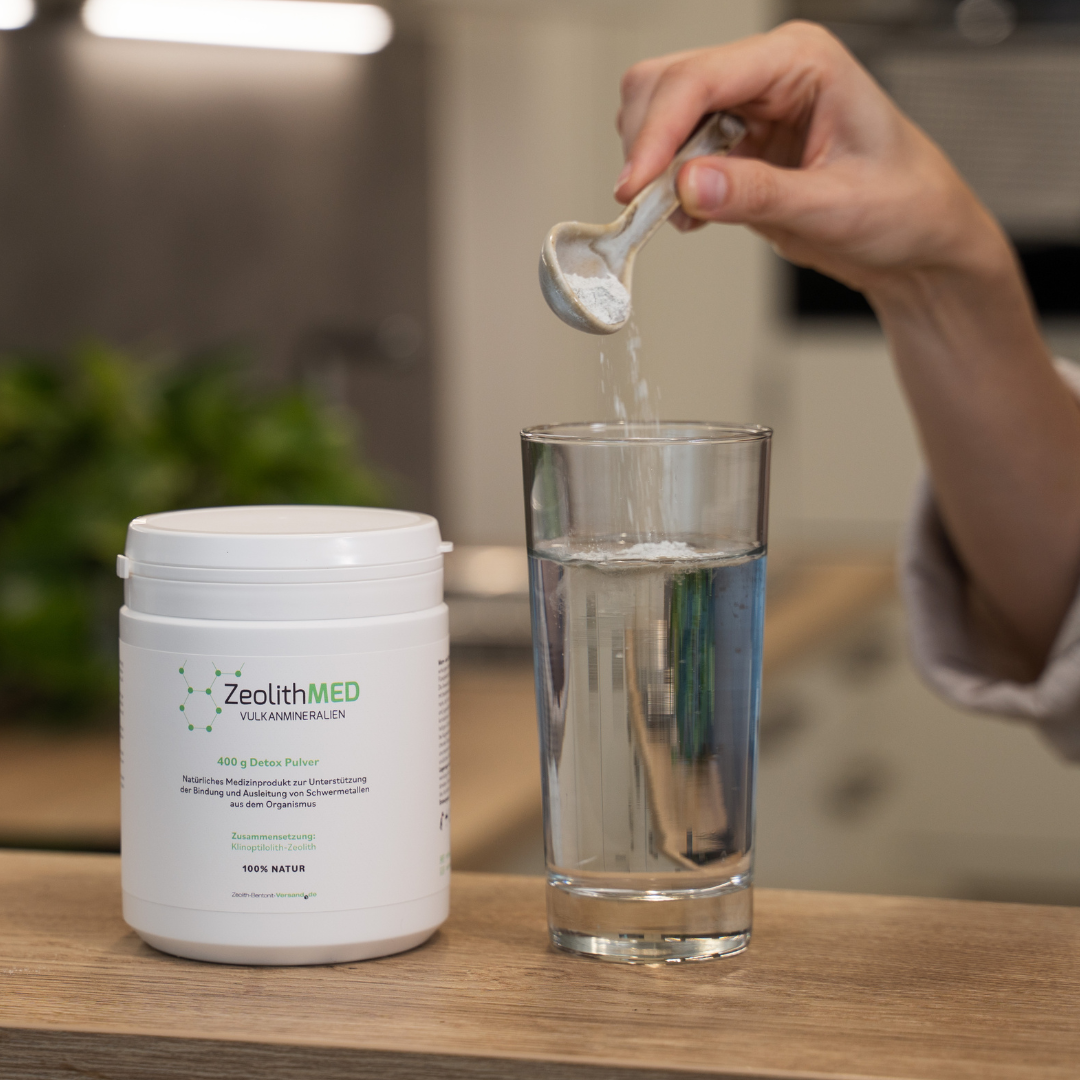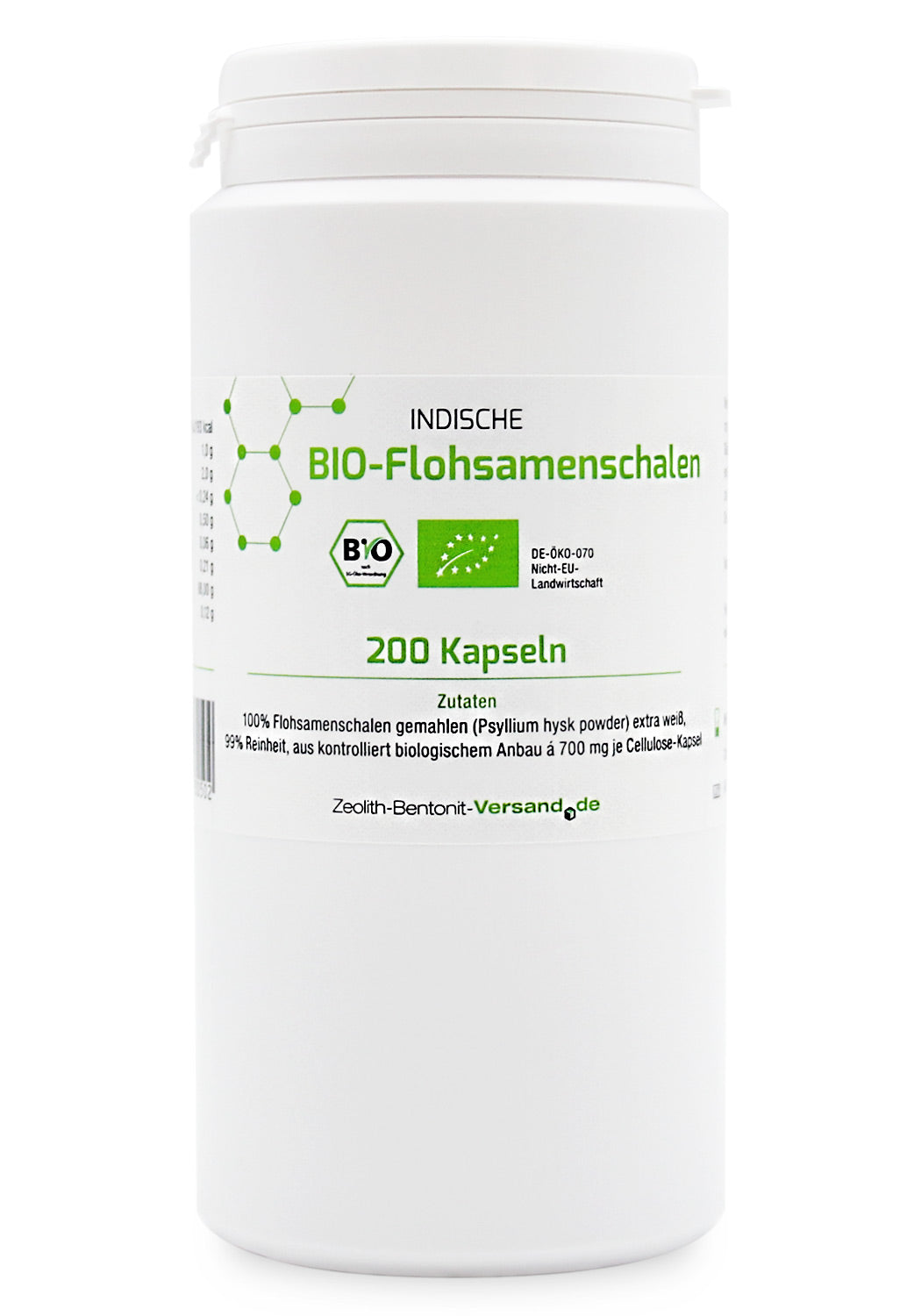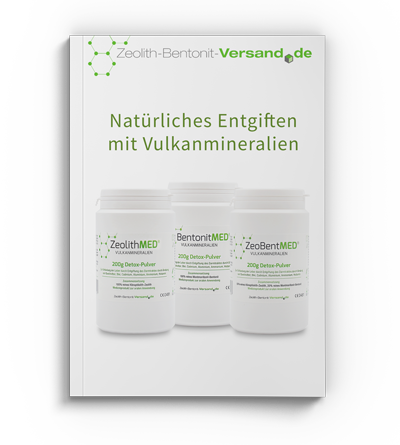Psyllium husk powder – origin, properties and uses
What are psyllium seeds and psyllium husks?
Psyllium seeds are the ripe, dry fruits of various plantain species (Plantago). European varieties often originate from Spain or southern France and are also known as ‘black psyllium’ due to their dark colour. Indian psyllium husks, on the other hand, come from the Plantago ovata plant and contain a particularly high proportion of swelling mucilage. Due to their light colour, they are also known as ‘blond psyllium’.
From psyllium husks to psyllium husk powder
Swelling volume greater than the whole seeds. Fine grinding produces psyllium husk powder, which can be easily stirred into liquids and exhibits even greater swelling properties.
Since soluble fibre is found almost exclusively in the husks, psyllium husks are considered more effective than whole seeds. Psyllium husk powder, in turn, has the highest swelling index: it binds more than 50 times its own weight in water, swells significantly in the intestine and contributes to a fibre-rich diet. With a swelling value of >80, it is significantly higher than the values of whole seeds or husks.
Cultivation and processing in India
We source our high-quality organic psyllium husk powder directly from India, the main growing region for psyllium. The plants are harvested by hand and then gently dried in the sun for around 72 hours to preserve their raw food quality.
Foreign matter is carefully removed using mechanical separators such as blowers, gravity and polishing before the pure husks are ground into powder. The result is a 99% pure, finely ground organic psyllium husk powder of certified quality. Each batch is also checked for residues such as pesticides.
Application in everyday life
Psyllium husk powder is tasteless, gluten-free, vegan and GMO-free. It can be used in many ways: stirred into water, where the consistency can be varied depending on the soaking time and amount, or as an ingredient in plant-based drinks, smoothies or yoghurt alternatives. Psyllium husks are popular as a binding agent in gluten-free cooking, as they absorb liquid and give dough structure without affecting the taste.
Those who prefer particularly easy handling should opt for psyllium husks in capsule form. They are practical for on the go and allow for flexible supplementation of your daily fibre intake.
Nutritional values and fibre
Our psyllium husks consist of around 90% fibre. 100 g contain approximately 185 kcal, 0.8 g protein, less than 0.1 g fat and only very small amounts of carbohydrates. The key to their popularity is their high swelling capacity, which makes them a valuable source of fibre for the intestines and digestion.
Tradition and history
Psyllium husks have been used in India for more than 2,000 years and are firmly established in the traditional diet. They have also been known and valued in Europe since ancient times. Today, they are among the most popular sources of plant-based fibre worldwide.
Conclusion: Buy psyllium husks – a concentrated source of fibre
Whether in powder or capsule form, psyllium husks are a versatile, plant-based supplement for your daily diet. Thanks to their high swelling capacity, neutral taste and flexible uses, they can be easily integrated into your everyday life.
